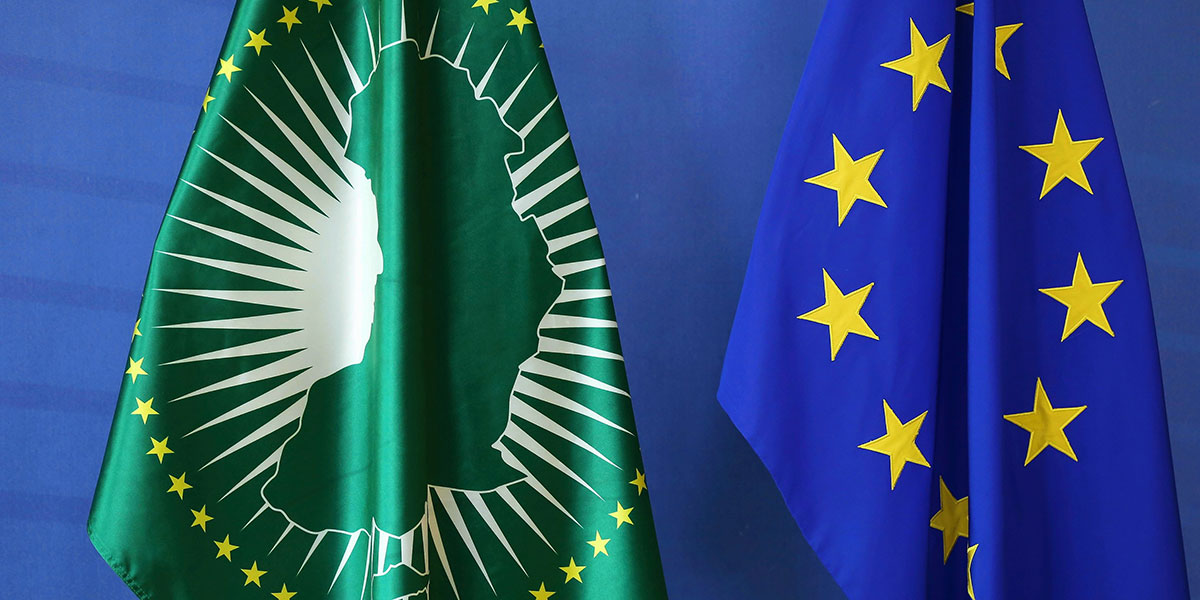As our world, in all its different circumstances, continues to respond to the threat to individuals, families, communities, societies and economies, it is difficult to overstate the toll that the COVID-19 pandemic has taken – the lives cut short, the space and time for the expression of grief curtailed for those who have lost loved ones, lack of access, denial of liberty, those experiencing severe illness or who are vulnerable, livelihoods made insecure or lost for millions of families. Coronavirus, being a global problem, necessitates a global response.
While the COVID-19 pandemic is a global threat, our global vulnerability differs greatly. These differences test both our global solidarity and the architecture of our multilateralism – Michael D. Higgins @PresidentIRL #C19ConflictMonitor
Tweet
Yet, it is so plainly evident that societies differ in their capacity to respond, such as those in Africa who are in a profoundly exposed position in terms of resources – for example, the proportion of the population that is reliant on the informal economy that prevails, and the consequent limitation that results on the measures that may be utilised in responding to COVID-19. While the pandemic is a global threat, our global vulnerability differs greatly. These differences test both our global solidarity and the architecture of our multilateralism now so much under threat. COVID-19 is a reality in all countries of Africa.
We should therefore remind ourselves that there is now an unprecedented opportunity for Europe to begin its journey towards a new contemporary and future shared ethical relationship, and do so not only as good regionalism, but also as an exercise in multilateralism, forging a new approach in its relationship with Africa, this time based on solidarity, one that will include a fundamental re-examination of how unfair trade and existing debt structures are impeding, not only the capacity to respond to COVID-19, but also the necessary transformations which a continent is getting underway, with an African agency that seeks a new form of partnership with its most proximate neighbour, the European Union.
The prospect of a future vaccine does not come guaranteed. There is a need for a global response as to the freedom and capacity of access of all to a vaccine that will have been probably developed with shared global research, State and private. United Nations Secretary General Guterres has correctly underscored how, if COVID-19 is to be countered, richer countries must assist those less resourced, or potentially as he put it “face the nightmare of the disease spreading like wildfire in the Global South with millions of deaths and the prospect of the disease re-emerging where it was previously suppressed”.
According to recent research published by Oxfam, the Coronavirus could double chronic hunger in Africa. Both the virus and the restrictions imposed to curb its spread are disrupting planting, harvesting, the movement of farm labour, and the scale and distribution of produce across Africa. There are urgent calls for borders to remain open for essential agri-food trade. In this context, it is necessary to recognise how dangerously fragile, often shallow, at times contradictory, the practice of multilateralism has become, how some conflicts are being continued even as the United Nations recently called for a ceasefire to enable citizens and their governments to respond to the challenges posed by the Coronavirus.
Yet, we must be cognisant that, once the COVID-19 crisis is over, all of the inherited and acquired structural impediments to Africa’s sustainable development remain. Perhaps the largest of these impediments remains debt. It is surely one of the greatest global failures – the continuing failure to achieve the will of the members of the United Nations in relation to making debt, and credit flows, serve as instrument rather than stranglehold – be it in relation to the Sustainable Development Goals, climate change, migration or pandemics.
Responding adequately to structural global inequalities can, by inter alia recognising African agency, provide Africa with the prospect of carving out a path of recovery of its deep and diverse cultures, a shared prosperity, an enduring peace, and a hopeful future, not only for all its citizens, but for us all, for the achievement, I repeat, of a sustainable connection between economy, society and ecology.
A paradigm shift in African Union-European Union relations is now urgently needed, founded on real multilateralism and solidarity – Michael D. Higgins @PresidentIRL @_AfricanUnion @EU_Commission
Tweet
I use the term ‘agency’ very deliberately, as I agree with development economist and High Representative of the Commission of the African Union, Carlos Lopes, that it is through the creation of African agency – that capacity to act autonomously and independently, which has been denied to Africa at so many points during its colonial and post-colonial periods – that Africans will be enabled to undertake the necessary structural reforms so as to create a brighter, shared future.
There is such strong evidence that our current development models are in disarray or producing dysfunctional consequences. A new model must come from a genuinely inclusive dialogue. Enabling Africa to become self-sufficient and to develop sustainably will require giving agency to Africans to build a sustainable future for all Africans.
A paradigm shift in African Union-European Union relations is now urgently needed. Our challenge as Europeans must, therefore, be to forge that new relationship with Africa, by arriving at a new place founded on real multilateralism and solidarity, so that we can be ethical partners in the necessary structural change that can deliver universal basic services and transformational prosperity in Africa, and an enduring, sustainable future for the continent of the young, on which those of us who believe in global social justice and solidarity place so much collective hope.
Michael D. Higgins, President of Ireland
This is an excerpt of a speech by President Higgins to the Institute of International and European Affairs on 10 June 2020, which is available here: https://president.ie/en/media-library/speeches/europe-and-africa-towards-a-new-relationship

